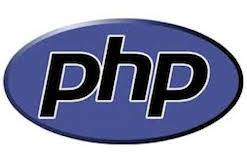
In this tutorial, we will show you how to install PHP 8 on Ubuntu 18.04 LTS. For those of you who didn’t know, PHP is arguably one of the most widely used server-side programming languages to create dynamic websites such as E-commerce sites, Blogs, WordPress, etc.
This article assumes you have at least basic knowledge of Linux, know how to use the shell, and most importantly, you host your site on your own VPS. The installation is quite simple and assumes you are running in the root account, if not you may need to add ‘sudo‘ to the commands to get root privileges. I will show you the step-by-step installation of PHP 8 on Ubuntu 18.04 (Bionic Beaver). You can follow the same instructions for any other Debian-based distribution like Linux Mint.
Prerequisites
- A server running one of the following operating systems: Ubuntu 18.04 (Bionic Beaver).
- It’s recommended that you use a fresh OS install to prevent any potential issues.
- SSH access to the server (or just open Terminal if you’re on a desktop).
- A
non-root sudo useror access to theroot user. We recommend acting as anon-root sudo user, however, as you can harm your system if you’re not careful when acting as the root.
Install PHP 8 on Ubuntu 18.04 LTS Bionic Beaver
Step 1. First, make sure that all your system packages are up-to-date by running the following apt commands in the terminal.
sudo apt update sudo apt upgrade sudo apt install lsb-release ca-certificates apt-transport-https software-properties-common
Step 2. Installing PHP 8 on Ubuntu 18.04.
- Install PHP 8 from the PPA repository.
Now, enable the PHP repository from Ondřej Surý using the commands as shown below:
sudo add-apt-repository ppa:ondrej/php
Once done, install PHP 8.0 on Ubuntu 18.04 Linux machine:
sudo apt update sudo apt install php8.0
We can check PHP 8.0 version on the Machine with simple PHP command:
php --version
Output:
PHP 8.0.3 (cli) (built: Mar 21 2021 14:54:12) ( NTS )
Copyright (c) The PHP Group
Zend Engine v4.0.3, Copyright (c) Zend Technologies
with Zend OPcache v8.0.3, Copyright (c), by Zend Technologies
Step 3. Installing PHP 8 Extensions on Ubuntu.
For installing various PHP extensions on the Ubuntu machine with the same apt-get command, below are some examples for the same:
sudo apt install php8.0-Extension-Name
There is various PHP 8.0 extension with this repository like below:
sudo apt install libapache2-mod-php8.0 sudo apt install php8.0-fpm sudo apt install php8.0-opcache
Then restart the Apache webserver for the changes to come into effect:
sudo systemctl restart apache2
Step 4. Testing PHP.
First, create a test PHP file called info.php in the webserver default home directory:
sudo nano /var/www/html/info.php
Then copy and paste the line into the file and save it:
<?php phpinfo();
Once done, now we open the browser and browse to the server hostname or IP address followed by the name of the file you created above:
http://your-ip-address/info.php
Congratulations! You have successfully installed PHP. Thanks for using this tutorial for installing the latest version of PHP (Hypertext Preprocessor) 8 on the Ubuntu 18.04 LTS (Bionic Beaver) system. For additional help or useful information, we recommend you check the official PHP website.